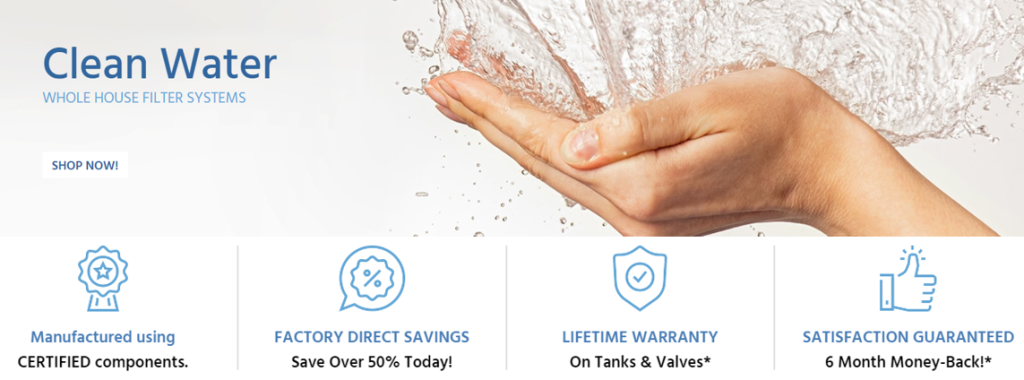The lifespan of water softener resin depends on many factors, but it typically lasts between 5 and 10 years.
Water softener resin is a key component in the water softening process. This strong, negatively charged resin is what actually attracts and traps the positively charged ions that cause hard water. The resin beads are very durable and can last many years, but eventually they will need to be replaced. Depending on the quality of your water and the amount of water used in your household, you can expect your water softener resin to last anywhere from 3 to 10 years.
How Long Does Water Softener Resin Last?
Resin typically lasts for 5 to 10 years.

Install a Home Water Filter & Get "Unlimited Safe Drinking Water" For Decades
Get Upto 55% Discount With a Lifetime Warranty & 6-Months Money Back Guarantee Free Shipping
SpringWell Water Filtration Systems: 100% American-Made & NSF Certified Water Filters and Water Softeners
How long does water softener resin last?
This is a question that is often asked, but the answer is not always so clear. There are many factors that can affect how long your water softener resin will last. Here are a few things to keep in mind:
1. The type of resin you have. There are two types of resin: cationic and anionic. Cationic resin is more durable and will last longer than anionic resin.
2. The quality of the resin. Some resins are better quality than others and will last longer.
3. The amount of use. If you use your water softener regularly, the resin will last longer than if it is only used occasionally.
4. The water conditions. Hard water will shorten the lifespan of resin, while soft water will lengthen it.
5. The storage conditions. Resin should be stored in a cool, dry place. If it is exposed to moisture or extreme temperatures, it will degrade faster.
Generally speaking, water softener resin will last for several years. However, there are many factors that can affect its lifespan. If you are concerned about how long your resin will last, it is best to consult with a water treatment professional.
How Often Should I Replace Water Softener Resin?
The resin in a water softener should be replaced every 3 to 5 years.
If your water softener isn’t working as efficiently as it used to, it might be time to replace the resin. Resin is what the water softener uses to remove minerals from your water, so it’s an important part of the system. But how often should you replace water softener resin, and what are the signs that you need to do it?
The frequency of replacement depends on the type of resin you have. If you have standard resin, you’ll need to replace it every 3-5 years. But if you have high-capacity or premium resin, you can get up to 10 years out of it.
There are a few signs that you need to replace your resin, even if it hasn’t been that long since you last did it. If you start to notice that your water isn’t as soft as it used to be, that’s a sign that the resin is becoming less effective and needs to be replaced. You might also notice a drop in water pressure, or that your water softener is running more frequently than usual.
If you’re not sure whether you need to replace your resin, you can always contact a water softener professional to take a look at your system and give you their expert opinion.
Replacing water softener resin is a pretty straightforward process, and you can do it yourself if you’re handy. Just make sure to follow the manufacturer’s instructions carefully, and always disconnect the power to the water softener before you start working on it.
Here’s a quick overview of how to replace water softener resin:
1. Locate the resin bed and remove the cover.
2. Use a garden hose to flush out the old resin.
3. Mix the new resin with water, following the manufacturer’s instructions.
4. Pour the new resin into the resin bed.
5. Replace the cover and turn the power back on to the water softener.
That’s all there is to it! Just remember to keep an eye on your resin and replace it when necessary to keep your water softener running smoothly.
FAQ
What Are The Signs That My Water Softener Resin Needs To Be Replaced?
How Do I Properly Maintain Water Softener Resin To Extend Its Lifespan?
-First, be sure to regularly check the resin for any build-up of sediment or debris. This can be done by backwashing the unit on a regular basis.
-Second, be sure to add a water softener cleaner to the unit on a monthly basis. This will help to remove any build-up that has occurred and prevent future build-up from happening.
-Third, be sure to have the unit serviced by a professional on a yearly basis. This will help to ensure that all parts are functioning properly and that the unit is operating at peak efficiency.
Conclusion
The average lifespan of water softener resin is about 10 years. However, the resin can last much longer if it is properly maintained.
If you still have any questions about water softener resin, feel free to comment below.


